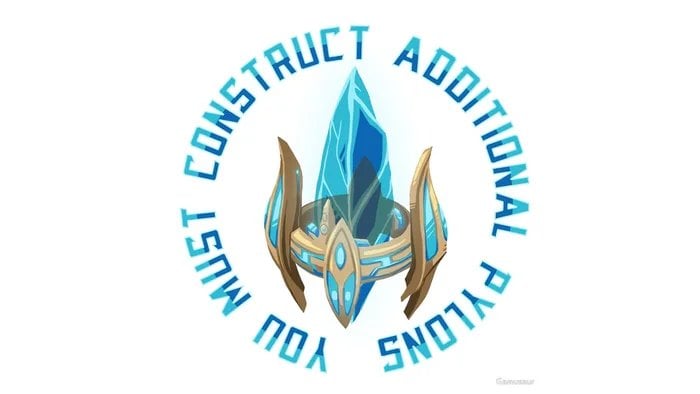These are a dead giveaway that someone speaks English as a second language. You can tell right away because they never mix them up. Native speakers use whatever they’re hearts desire.
True, my pet-peeve as an ESL speaker is that native speakers write
it'sinstead ofitsall the time. They could make it right and save one character, but nope.I’m pretty particular about my there, their, and they’re but what you described happens to me all the time. My phone defaults to using “it’s” and, unlike many other scenarios, I don’t feel like correcting that one is worth the time it takes to do so.
My phone is smart enough now that it corrects it depending on the context. Not always but most of the time, like if it write “it’s his aunt” it does it automatically and also if I write “my life has had its struggles” it writes it’s at first and then corrects it once I finish the next word
Whereas I’m extremely pedantic and edit my posts to correct such errors if I notice them later in the day.
A lot of people would get “its” wrong anyway, but my autocorrect on my phone changes it basically every single time. Including just now. I sometimes don’t catch it, other times I don’t feel like fighting a touch screen to go back and fix it. Having said all that, it’s a pet peeve of mine too lol
As a native speaker who has to write grammatically correct, professional communications all day, it drives me crazy other native speakers can’t be bothered.
My pet peeve is “could of”
Ugh. That’s just immediately makes me cringe when I hear or read it.
And they also regularly use whatever vowel suits their mood. It’s like they have a vowels bucket where they’re all mixed up.
As a non native speaker I almost always type “it’s” out before my brain autocorrect reminds me “that means ‘it is’” and then I have to correct it to “its” - it’s kinda counter-intuitive…
The confusing part of “it’s” vs “its” is that “its” is a pronoun, and therefore its possessive doesn’t use the apostrophe, where as you use one with possessive nouns. So usually when you are writing you’re thinking about the possessive relationship, not so much about whether you are using a pronoun to describe your subject.
“My Lemmy account’s username”
“Its username”
It’s funny because my phone defaults to adding the apostrophe when I just type “its” but if I follow it with a noun (or adjective) it automatically goes back and removes it.
I get if you’re not paying much attention to it, but the apostrophe indicates a contraction, idk how that’s counter-intuitive.
The apostrophe is also used for possession. For example, the DoJ’s lawsuit against Apple was filed Thursday morning or Adrian’s baseball went missing. It’s only backwards for its.
The one that really kills me is the apostrophe for plural stuff. My boss did a PowerPoint the other day with fuckin apostrophes all over the place. It’s not that hard.
I’ve seen non native speakers use better grammar than native speakers
Thatsthejoke
Fuckin whoosh on my ass
I see what you did they’re at the end ;)
Excuse me, but I am a native speaker and the misuse of those three or the various ‘yours’ annoy the fuck out of me.
Hah, funny. As a non-native speaker I never mix them up as I am very conscious of it when I’m writing. I’m also often translating from French in my mind to English on “paper” which helps differentiate all of them since they don’t sound the same in French.
If you are a proper stereotypical French speaker though, I bet you confuse “actually” with “currently” all the time ;)
Currently I don’t
Edit: Is that a thing though? I really don’t think I do.
Edit 2: Took a second to think about it and yeah I guess because actuellement translates to currently it could be mixed up but I don’t think I have or have I ever heard anyone mix those two up. I also speak English since I’m like 5 years old though so maybe I would have at some point but I can’t say I do now.
Being a German, my fellow countrymen have the same problem as the French, I hear the mixup a lot in my work environment :) We use “aktuell” for currently. But yeah, I have not spoken English from quite such an early age as you, but that particular mistake I also don’t make. I feel it’s the kind of mistake that people make for whom learning the language was a “necessary evil” / chore in order to succeed professionally or accomplish some other goal. People who actually enjoy learning a language will not keep repeating the same mistake if they can regularly witness native speakers using a word differently.
I feel it’s the kind of mistake that people make for whom learning the language was a “necessary evil” / chore in order to succeed professionally
Ahhh yeah that would make sense, I do love languages and have always found them fun. I also grew up in a bilingual area. My little village is French but most surrounding towns/cities are English speaking and was immersed in it from a very young age. I actually learned English mostly to argue with the kid next door who only spoke English (and from a whole lot of American English TV.)
From wiktionary:
In most Romance, Slavic and Germanic languages the cognate of actual means “current”.
Another French here. That’s definitely a thing!
Well, native speakers are the ones that have decide what’s the future of the language. Maybe you guys think that each “form” holds irrelevant or redundant information and in a few decades you fuse them all into one.
Written and spoken language is usually not 100% the same language. And this is an error that comes up when you screw up converting homophone words of your spoken mother tongue into written language.
I knew the difference between the multiple you’s when I just started learning English and was around the A2 level, but when I read someone write “you’re not your” to another person I thought your was not an actual word, so I used you’re all the time, even for some freelance translation jobs (lol). It’s really weird that someone who speaks English all the time mixes these things up, while a beginner knows all about these.

This makes me want to commit war crimes
Wait what happened to my welcome
Decapitated. Whole big thing. We had a funeral for a bird.
You are not real man.
It is somewheir else now
Theiribble
Your literally worst then Hitler!
*wurst
Your welcome has expired
I have shat upon better people for lesser crimes.
I have become radicalized
You can just call me Matt though.

I don’t get it. There all the same word.
checked to see if I actually launced reddit
You English very yes!
Tank yuo
Brilliant. Sadly, someone will see this and trust it. Butt I’m still hear fore it.














